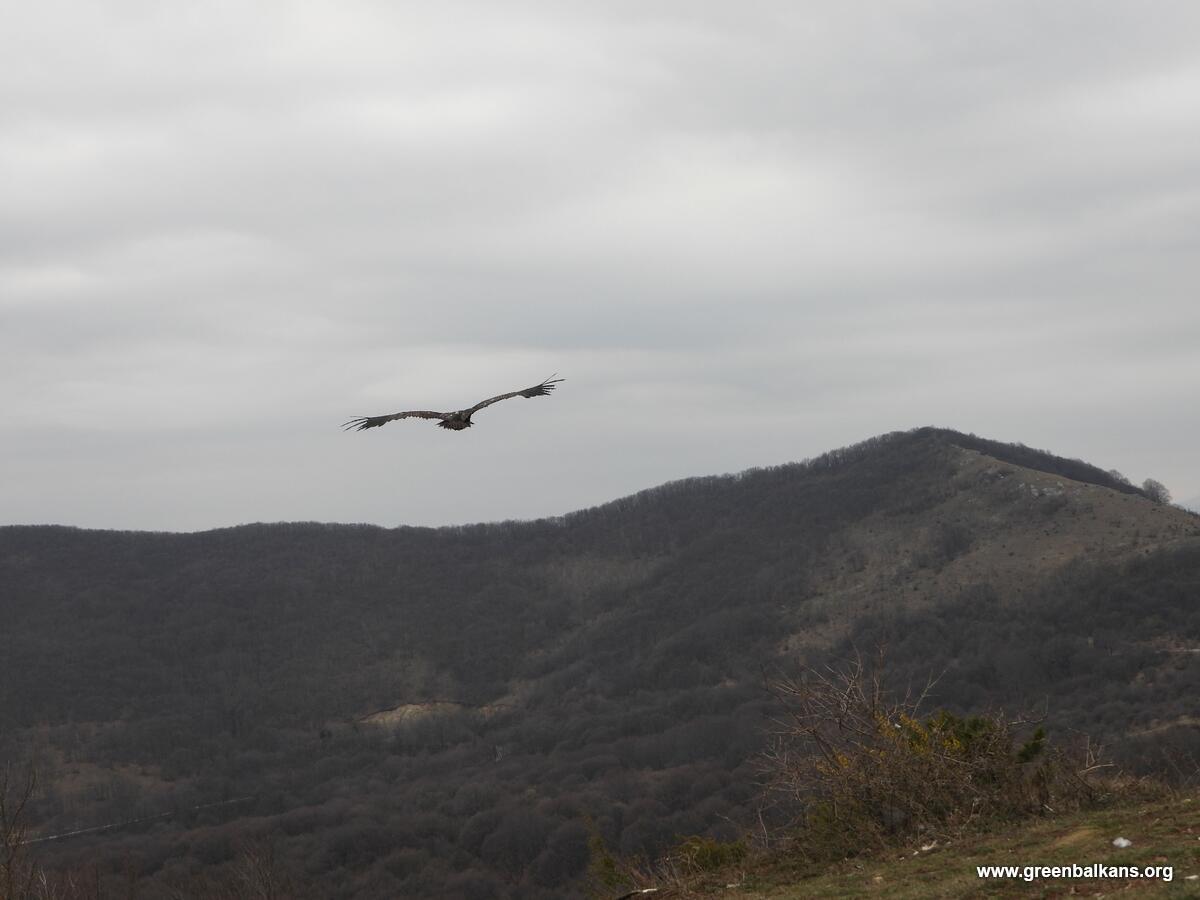It is our sad duty to report the death of Ostrava, one of three Cinereous Vultures released last summer as part of the historic project to reintroduce the species to Bulgaria. Ostrava has been found dead in the Peloponnese in Greece the latest victim of suspected illegal wildlife poisoning.
Ostrava, a chick born in captivity in Ostrava Zoo in the Czech Republic, was released in the Kotel Mountains in Bulgaria back in July 2018, as part of the Vultures Back to LIFE project . Ostrava was the last of the three birds to leave Bulgaria on a winter migration in November 2018, and settled in the south of the Peloponnese Peninsula in Greece in early December.

It was here that she was discovered by volunteers from the Hellenic Ornithological Society on February 16 after the alarm was raised when data from the GPS transmitter fitted to Ostrava suggested she had not moved for three days.
Ostrava was found to be in good weight when she was discovered dead and as she was found with around 30g of food residue in her beak it is fair to assume that the main cause of death was illegal poisoning, which often kills birds almost instantly. Ostrava remains were transferred to the Athens Central Reference Laboratory for a post-mortem and the necessary toxicological analysis to identify if poisoning was the cause of death and if so the type of poisonous substance used. In the region Ostrava was found the illegal practice of placing poisoned baits is fairly common to control jackals, foxes and stray dogs.

Ostrava is the second Cinereous Vulture to be found dead with suspected poisoning in Greece in the last few weeks, following another recent reported death in the Dadia – Lefkimis – Soufliou National Park, in northeast Greece, near the site of the Balkans only remaining breeding colony of this species (now numbering ca. 35 pairs).
The death of Ostrava is a blow to the efforts to restore Europe’s largest vulture to its range across the Balkan Peninsula. The news of her death comes just weeks before 12 Cinereous Vultures originated from wildlife recovery centres in Spain are due to released into the wild in Bulgaria
Recovering Cinereous Vultures and other vulture species in the region is possible, but as the death of Ostrava highlights illegal wildlife poisoning is the single biggest factor limiting their return. We strongly condemn this senseless death and urge our Greek colleagues to do everything possible to bring the perpetrator of this crime to justice.
Balkan Anti-Poisoning Project

As part of our efforts to tackle illegal wildlife poisoning and support our partner organisations across the Balkan states we are currently implementing the Balkan Anti-Poisoning Project in six countries in the region, including Greece. The project is working to establish or strengthen National Anti-poison Working Groups in each country, and develop National Anti-Poison Roadmaps. These Roadmaps will provide the foundation for future work combating the use of poison and prevent the illegal killing of wildlife and protect vultures

Led by the wildlife conservation charity Green Balkans, with activities also implemented by theFund for Wild Flora and Fauna, and bringing together partners from Bulgaria, Spain and Germany, Vultures Back to LIFE aims to reintroduce the cinereous or Eurasian black vulture to Bulgaria. The team will transfer and release around 60 birds, some from captive-breeding, but mostly coming from wildlife rehabilitation centers in Extremadura (Spain) into the wild in Bulgaria as well as creating supplementary feeding stations and improving populations of wild herbivores, improving the nesting conditions and creating artificial nest sites and tackling some of the major threats to vultures in the country such as insulating electricity pylons and illegal use of poison in the nature.




